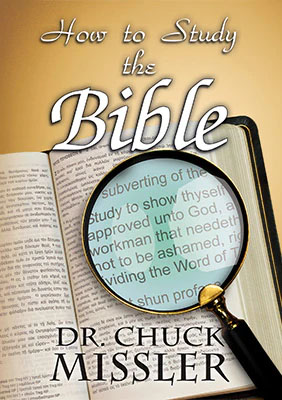The Bible is the Word of God.
That’s quite a statement. If we really believe that, it should change everything. We realize that the Bible is not the random jottings of ancient Hebrew sages, but a portal — a portal into the heart of our Creator. The Word of God is given to instruct and correct and guide us,[1] but it is also a weapon to protect us from the enemy of our souls.[2]
And that from a child thou hast known the holy scriptures, which are able to make thee wise unto salvation through faith which is in Christ Jesus.
— 2 Timothy 3:15
For the word of God is quick, and powerful, and sharper than any two-edged sword, piercing even to the dividing asunder of soul and spirit, and of the joints and marrow, and is a discerner of the thoughts and intents of the heart.
— Hebrews 4:12
The Bible is by far the best-selling book of all time, yet thousands of Bibles sit on shelves year after year gathering dust. When we come to realize the true nature of the Bible, we understand what a terrible waste that is. We live in a world filled with deception, and the best way to recognize a lie is to already know the truth. We need to know this book that God breathed through His prophets and disciples. We need to know what it says and how to wield it in our own lives. I often say that the Bible is a message by one Author from outside our time domain, but it’s vital to know why I say that and how it’s true.
How should we study the Bible? I’m going to make some personal remarks in this book. I’ve been studying the Bible for more than sixty years, so I’ve developed my own viewpoints on matters. However, nobody should accept anything just because I’ve said it or because some other Bible teacher has said it. You have a much better tutor than me readily available to you through the person of the Holy Spirit. Research and study the Bible for yourself to determine what it says — from front to back. My foundational verse on Bible study is Acts 17:11, which tells us about the people of Berea, who:
…were more noble than those in Thessalonica, in that they received the word with all readiness of mind, and searched the scriptures daily, whether those things were so.”
— Acts 17:11
We are in a predicament as human beings. We are plagued by a general spiritual blindness. Most of us cannot see past the atoms of this world into the dimensions beyond us, the dimensions of angels and demons, or of the spiritual warfare that takes place on our behalf. We get a peek in 2 Kings 6 and Daniel 10, but we cannot see the full reality ourselves.
Too many of us think of Jesus Christ as that broken carpenter hanging on a cross. We do not fully appreciate that the man who rose again on Resurrection Sunday is the King of the universe, through whom all things were made. (John 1:3) As we study the Bible, our greatest discovery will be a growing appreciation for the person and identity of Jesus, the Messiah of Israel and Creator and Lord of all things.
The Age of Deceit
It has become increasingly politically incorrect to be a Bible believer. It’s strange to realize that many church congregations are embarrassed by people who take the Bible seriously. Our culture is apathetic to the very idea of truth. It used to be the dream of American mothers and fathers for their children to go off to college and learn, to become good thinkers and moral people able to distinguish right from wrong. Today, students go to college to be told there is no right and wrong. They are told, “You have your truth and I have mine.” The value of relativism has had tragic consequences.
Satan was a liar and a murderer from the beginning (John 8:44), and his goal is to deceive us. The only remedy, the only inoculation we can get to protect us from deceit is for us to do our homework. Benjamin Franklin is often misquoted as saying, “a jack of all trades and a master of none.” It’s actually, “a jack of all trades and a master of one.” In other words, an educated person should know a little about everything, but know everything about one thing. If we are Christians, we should be a master of the Bible. We should know it inside and out. As Christians, we don’t just represent ourselves. We are ambassadors for Jesus Christ, and it’s vital that we represent Him faithfully. We cannot do that well if we do not know the Bible — and not just parts of the Bible taken out of context, but the Bible as a whole.
It’s my premise that we cannot understand God’s Word by spending 45 minutes at it once a week listening to a sermon (which may or may not dig into the Bible at all). We need to be involved in dedicated personal study.
Prerequisites to Study
I’m going to suggest there are a couple of preconditions you should have in place before you start your study of God’s Word. These are important. We want to get all we can out of our Bible study. We don’t want it to be a dry lump of wordy onion-skin papers that hit us in the face but don’t dig deep into our hearts and souls.
First, ask Jesus Christ to be Lord of your life. This is vital, because when the Holy Spirit comes and dwells in us, He is the one who leads us into all truth. In John 3, Jesus told Nicodemus that he had to be born again, and that applies to all of us. People who aren’t saved can read the Bible and learn from it, but it’s the Holy Spirit who brings the Bible to life in our minds and hearts:
Even the Spirit of truth; whom the world cannot receive, because it seeth him not, neither knoweth him: but ye know him; for he dwelleth with you, and shall be in you.
— John 14:17
But when the Comforter is come, whom I will send unto you from the Father, even the Spirit of truth, which proceedeth from the Father, he shall testify of me:
— John 15:26
Howbeit when he, the Spirit of truth, is come, he will guide you into all truth: for he shall not speak of himself; but whatsoever he shall hear, that shall he speak: and he will shew you things to come.
— John 16:13
Many people don’t realize that God wants to give us the Holy Spirit, just as a father wants to give his children good things. We need His Spirit, and He is more than willing to fill us. We just have to ask.
For every one that asketh receiveth; and he that seeketh findeth; and to him that knocketh it shall be opened. If a son shall ask bread of any of you that is a father, will he give him a stone? or if he ask a fish, will he for a fish give him a serpent? Or if he shall ask an egg, will he offer him a scorpion? If ye then, being evil, know how to give good gifts unto your children: how much more shall your heavenly Father give the Holy Spirit to them that ask him?
— Luke 11:10–13
We might have a big experience when the Holy Spirit comes to dwell in us — we might feel His love and power fill us. Or, we might not feel anything at all — yet the Holy Spirit is there, ready to do His work in us. Either way, we know that His presence is one request God will absolutely honor when we ask, because it is always good.
A second precondition is that we should always open our Bible study with prayer. It’s important to remember that Bible study is a spiritual issue as well as an intellectual one. God gave us brains, and He wants us to use the minds He gave us, but we are also on a spiritual battlefield. We should always open with prayer.
A third part of preparation is obedience. We want to be under the tutorship of the Author of the Bible. God will reward our obedience with further insights. Obedience is a prerequisite, and we want to be pre-committed and surrendered to Jesus Christ as we embark on this study.
No Shadow of Turning
Scientific explanations are always changing. That’s the reality of science. As more information comes in, the stories change. Nothing is ever 100% proven in science, and all scientists know this. It was once thought that the speed of light was infinite, until the 17th century Danish astronomer Ole Rømer discovered from his observations of Jupiter’s moon Io that light had a finite speed. If we compare a physics course using 1950s textbooks to a physics course today, the differences would surprise us. Neanderthals have long been regarded as hulking, stupid cave dwellers, but archeological finds have demonstrated that Neanderthals were as intelligent as modern humans (if not more so).[3]
Unlike scientific “facts,” the truth never changes. That might seem an odd thing to say, but scientific facts are based on our limited observations and knowledge about the world, and truth is based on reality itself. Our understanding might change, but the truth never does. What’s more important, God never changes. There is no variableness in Him — no “shadow of turning.”[4] Jesus Christ is the same yesterday, today, and forever.[5]
What does that mean for us? It means that God is dependable. It means He doesn’t stop being who He is. His love is everlasting, and so is His Word. His promises three thousand years ago still stand today. Our circumstances change. Our culture changes. The world changes, but God doesn’t. In the 8th century B.C., Isaiah declared that God’s Word lasts forever, and nearly 900 years later, the apostle Peter affirmed that truth:
The grass withereth, the flower fadeth: but the word of our God shall stand for ever.
— Isaiah 40:8
For all flesh is as grass, and all the glory of man as the flower of grass. The grass withereth, and the flower thereof falleth away: But the word of the Lord endureth for ever. And this is the word which by the gospel is preached unto you.
— 1 Peter 1:24–25
God accomplishes His purposes in His time — in “the fullness of time” — but He accomplishes them. When Jesus fulfilled a multitude of Old Testament prophecies, He was fulfilling promises that God had given 400–4000 years earlier. When we consider that 2000 years have passed since Christ’s birth, remember that God gave a ram in Isaac’s place on Mt. Moriah as a type of Christ nearly 2100 years before Jesus was born.[6] God exists outside of time. A thousand years are as a day in the eyes of God.[7]
The Bible is filled with end-times prophecies about Israel, yet 200 years ago there was no nation of Israel. Scholars habitually allegorized those prophecies, because Israel hadn’t existed as a nation since the early years of the Roman Empire. Then in 1948, Israel declared its independence. Within a century, Jerusalem went from being a dingy backwash part of the Ottoman Empire to a cup of trembling for all the nations of the world. Suddenly, the ancient prophecies about end-times Israel came to life again.
Yet, the purposes in God’s heart never changed. He never changed. Our limited perspectives got a step up in 1948, but the God of the universe, the King of eternity knew during all those intervening centuries exactly what He had in store for Israel and for the salvation of the whole world.
As we read the Bible, we need to remember that God doesn’t change. His power, His love, His goodness and truth have everything to do with His unchanging character and very little to do with physical appearances. We live in a broken world doomed for ultimate destruction. We are faced daily with spiritual warfare that can hide its face behind the physical bodies that cry out in front of us. Yet, the Bible blazes the constant light of salvation to our dying world. We need to know it. We need to study it and understand it as our source of spiritual food.
During the middle of World War II, two Dutch sisters managed to smuggle a Bible into the Nazi’s Ravensbruck concentration camp. Corrie ten Boom relates that time in her 1971 book The Hiding Place, saying:
From morning until lights-out, whenever we were not in ranks for roll call, our Bible was the center of an ever-widening circle of help and hope. Like waifs clustered around a blazing fire, we gathered about it, holding out our hearts to its warmth and light. The blacker the night around us grew, the brighter and truer and more beautiful burned the word of God.
When we grasp the truth of the Bible and then obey it, it always leads to more truth. Most people are spiritually starved, and they don’t even know what the Bible says. They believe the propaganda campaign against it. They believe the lie that God is a violent, cruel, capricious being — or they believe the lie that He is a big soft, Santa Claus character in the clouds. A love for the Bible requires knowing the Bible — and knowing the Bible leads us to a fuller, truer and greater knowledge of God. Ultimately, knowing God leads to loving and adoring Him. When we discover how truly good and wise God is — when we discover His incredible strength and love — we can hardly help but grab hold of Him with all our hearts.
This excerpt is from Dr. Chuck Missler’s book How to Study the Bible, available from the K-House Store.
Notes:
- 2 Timothy 3:16 ↩
- Ephesians 6:17 ↩
- Villa, P., Roebroeks,W. (2014) Neandertal Demise: An Archaeological Analysis of the Modern Human Superiority Complex. PLOS ONE 9(4): e96424 ↩
- James 1:17 ↩
- Hebrews 13:8 ↩
- Scholars offer many drawn-out dating schemes for the Old Testament. To find the date of Isaac’s near-sacrifice, we can do simple Bible math. Adding king reigns from the destruction of the Temple in 586 B.C. to Solomon’s reign puts Solomon’s 4th year in 1015 B.C. Solomon’s 4th year was 480 years after the Exodus (1 Kings 6:1). The Exodus took place 430 years after Jacob’s family went down into Egypt (Exodus 12:40–41). Jacob moved to Egypt at age 130, living there 17 years until he died at 147 (Genesis 47:28). Isaac was sixty when Jacob and Esau were born (Genesis 25:26). According to Josephus in The Antiquities of the Jews (1.13.2), Isaac was almost-sacrificed by Abraham when he was 25 (35 years before the twins were born). This basic math places the Akedah, the near-sacrifice of Isaac, in 2090 B.C. ↩
- Psalm 90:4; 2 Peter 3:8 ↩







